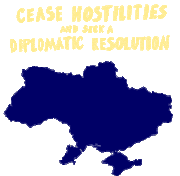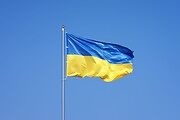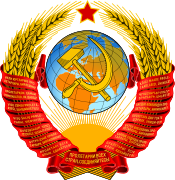|
US Foreign Policy posted:Disclaimer: I do not know how credit/loans works in Venezuela and am just assuming it is similar to America. I'm not sure if massive loans were the norm before the Chavez era, as they are in America. I can only tell you while I grew up the vast majority of people I knew either outright owned their apartments or rented them. Actual houses aren't common in Caracas unless they're family heirlooms or you earn a stupid amount of money (at least by Venezuelan standards). Lately, I can tell you bank loans aren't that common and when they happen, they're for small amounts. The government puts pressure on the banks to keep giving out loans but most people know they can use that money to buy dollars, wait a little while paying only the minimum and then repay them by selling a fraction of what they bought. Banks understand this, so they give out as few loans as possible or limit them to small amounts so they don't lose too much money. For example, my mom was approved for a loan of about Bs200,000 this year. That's less money than I'd spend on half a week's groceries, but she got it anyway because it may help build up her credit. A few months ago, I remember commenting on this thread that I maybe spent about Bs600K on a month's worth of groceries for two people here (and I was being generous). Now I can tell you that sum is about Bs2,000,000. In short, you'd be crazy to loan out money here if the interests aren't tied to the bolivar's depreciation.
|
|
|
|

|
| # ? Jun 9, 2024 04:06 |
|
Hasn't the entire property market been ('illegally') priced in dollars now for many years? What about cars and other big-ticket items? Do they also require outright 100%-down purchases, or do they have some sort of under-the-table loan system where the loan is denominated in dollars / tied to the BsF's real market exchange rate?
|
|
|
|
Chuck Boone posted:
Ah yes, the "I did some horrible poo poo and refuse to own up to it but still want the crowd points" technique. Well played, Ortega I hate her so loving much
|
|
|
|
Saladman posted:Hasn't the entire property market been ('illegally') priced in dollars now for many years? What about cars and other big-ticket items? Do they also require outright 100%-down purchases, or do they have some sort of under-the-table loan system where the loan is denominated in dollars / tied to the BsF's real market exchange rate? Yes, when it comes to cars, some people will accept the equivalent in Bolivares but in most cases, the prices will be set in dollars. Apartments and houses are always priced in dollars and they're almost always paid in full (using wire transfers to international banks) since once someone moves in, you have no recourse when it comes to kicking them out. The transactions are done under the table and Venezuela has some ridiculous tenant protection laws which basically mean there's no way of getting you out of somewhere once you've been a tenant there for a while.
|
|
|
|
Venezuela just lost 90 tons of gold to a 1.2 billion dollar swap with Deutsche Bank, that's about 30% of the country's reserves in gold.
|
|
|
|
The vice president of the National Assembly, Freddy Guevara, had his parliamentary immunity revoked late last week by the Supreme Court. The regime's argument is that since Guevara was one of the leaders of the anti-government protest movement this year, he directly led to the deaths of the ~135 people who were killed because they wouldn't had been killed if there hadn't been a protest. The argument makes absolutely no sense any way you look at it, but that doesn't matter. The Chilean embassy in Caracas has granted Guevara refuge, and he's been there since Saturday. The offset the increased pressure on Guevara, the regime released two high-profile political prisoners over the weekend: Yon Goiocoechea and Delson Guarate. Goiocoechea was arrested in August of last year after the regime's political police picked him up driving around Caracas with "explosives and detonators" because he was allegedly on his way to unleash a terror campaign the likes of which the country has never seen before. Guarate was arrested at around the same time on a bunch of terror-related charges. Both of them were popular opposition figures with the Voluntad Popular party, and Guarate was the mayor of a town in Aragua. Two superficial yet crucial points to understand about the Goiocoechea and Guarate cases: when they were arrested, the regime made all kinds of noise about how they were dangerous, bloodthirsty terrorists. Guarate never even saw a judge in the year that he spent in detention. His preliminary hearing was delayed ten times. Goiocoechea was held incommunicado for nearly 3 days after his arrest, and a judge threw out the case against him in October of 2016 and ordered his release. The authorities ignored the order and simply kept him in prison. What happened to Goiocoechea and Guarate is emblematic of the plight of so many of the country's approximately 389 political prisoners. If you speak out against the regime and rub it the wrong way, you get picked up on fictitious charges and left to languish in jail for as long as the regime feels like holding you.
|
|
|
|
https://twitter.com/luisromeroc/status/927218087061049352 He's also now running for mayor in the Hatillo municipality, despite VP (Who currently hold that municipality, and the party he was a member of) withdrawing from the election. Venezuela is complicated. It's possible that, in exchange for his release, he was forced by the government to become part of the official opposition, and thus run for the election.
|
|
|
|
Washington Post posted:Venezuela proves petro-states can go broke, too https://www.washingtonpost.com/news/global-opinions/wp/2017/11/07/venezuela-proves-petro-states-can-go-broke-too/?utm_term=.066cbdedb741
|
|
|
|
https://www.youtube.com/watch?v=BIrfXjRTn5M Here's a clip of Manuel Rosales demonstrating why Maduro is still president. He blundered his way though the entire interview, and then let slip that apparently a call by a senior member of Primero Justicia (probably Julio Borges) dismantled an agreement with the government that, according to him, would have eventually led to a transition. He finished the interview by claiming that being sworn in as governor in front of an illegal power like the ANC is not illegal per se. fnox fucked around with this message at 12:56 on Nov 8, 2017 |
|
|
|
fnox posted:Venezuela just lost 90 tons of gold to a 1.2 billion dollar swap with Deutsche Bank, that's about 30% of the country's reserves in gold. and so it begins, gold is like one of the last hard assets a country can have that gives it's government legitimacy
|
|
|
|
https://twitter.com/sllucchese/status/928453996657995776 So, what I said happened with Yon Goicoechea is actually true. The government is releasing political prisoners in exchange of having them run in the municipal election, they need to create their own opponents now that serious candidates aren't actually running.
|
|
|
|
A couple of big news:
EDIT: Because we're talking about Venezuela, ignore everything I said because CORPOELEC said early this afternoon that they ended up making the payment after all. I'm not sure how this affects the notice of default, since the payment was due yesterday and all. Chuck Boone fucked around with this message at 21:13 on Nov 10, 2017 |
|
|
|
They're doing it deliberately to crash the bond prices so they can buy it while "hypothetically" not being in default. This is the moment where they are "raspando la olla", as we say, the beginning of the actual death spiral, not for them necessarily, but certainly for the country's economy. There'll be nothing left of Venezuela by the time Maduro decides to actually step down.
fnox fucked around with this message at 00:32 on Nov 11, 2017 |
|
|
|
fnox posted:They're doing it deliberately to crash the bond prices so they can buy it while "hypothetically" not being in default. This is the moment where they are "raspando la olla", as we say, the beginning of the actual death spiral, not for them necessarily, but certainly for the country's economy. There'll be nothing left of Venezuela by the time Maduro decides to actually step down. This makes sense. Couple today's faux-default with Maduro's announcements last week and you probably have bolichicos making a killing buying bonds at bottom of the barrel prices. After this week, probably no one will want to touch Venezuelan bonds with a ten-foot pole, so we're basically in default already even if it's not official. There's supposed to be a bondholder meeting in Caracas on the 13th of this month to discuss bond restructuring, but most people probably won't attend because Tarek el Aissami is in charge of the whole thing, so they can't legally deal with him (and who the hell would want to travel to Caracas?). Next week should be interesting as far as Venezuelan news go.
|
|
|
|
Are the bonds even worth anything with a 50% daily inflation rate?
|
|
|
|
Wilmington Trust is for reference a moderately large (top ten) US bank. Any US banks they're currently dealing with are really not going to be amused.
|
|
|
|
Magius1337est posted:Are the bonds even worth anything with a 50% daily inflation rate? The bonds are denominated in USD.
|
|
|
|
karthun posted:The bonds are denominated in USD. Ok, better question, do they have the reserves to guarantee it?
|
|
|
|
Magius1337est posted:Ok, better question, do they have the reserves to guarantee it? Venezuelan external debt levels far exceed their reserves. Also, when the PSUV does finally collapse, it is hard to see how Venezuela is going to bounce back, its credit rating will be underwater and it will have a litany of creditors waiting to pounce.
|
|
|
|
Ardennes posted:Venezuelan external debt levels far exceed their reserves. Also, when the PSUV does finally collapse, it is hard to see how Venezuela is going to bounce back, its credit rating will be underwater and it will have a litany of creditors waiting to pounce. ok, how much gold do they have left
|
|
|
|
also, if you're rich why haven't you left the country months ago?
|
|
|
|
Magius1337est posted:also, if you're rich why haven't you left the country months ago? Good luck becoming a criminal oligarch when the international creditors impose shock therapy on the new regime if you flee the country.
|
|
|
|
Magius1337est posted:ok, how much gold do they have left not much, they have been exchanging it in quite the big quantities to pay for obligations, weeks or days ago they traded a few tons for cash to germany.
|
|
|
|
Celexi posted:not much, they have been exchanging it in quite the big quantities to pay for obligations, weeks or days ago they traded a few tons for cash to germany. Is that the cash they received as part of the gold swap? Iirc, they didn't even get the remaining 500 million and it's just being used to cover debt liabilities.
|
|
|
|
For the most detailed look at the Venezuelan economy you're likely to get anywhere, check out Venezuela Econ. The website was created by a Girish Gupta, who's a journalist with Reutuers who works out of Venezuela. You have to sign up with your e-mail account, but it just takes a second and it's totally worth it. The website is updated constantly. There's a meeting of creditors in Caracas today scheduled for 2:00 PM. Maduro said yesterday that 91% of PDVSA creditors had RSVP'ed to the meeting, which totals about 414 individuals. There's $60 billion in foreign debt on the line. fnox posted:They're doing it deliberately to crash the bond prices so they can buy it while "hypothetically" not being in default. This is the moment where they are "raspando la olla", as we say, the beginning of the actual death spiral, not for them necessarily, but certainly for the country's economy. There'll be nothing left of Venezuela by the time Maduro decides to actually step down. That's one possibility, and it's one that they've been relying on for a while. The other theory I've heard is that Maduro knows that the country is done for, and that he's just been waiting for the chance to finally default while still being able to claim that it's not his fault. The fact that the US and Canada (and the EU as of today) have sanctioned Venezuelan officials, and that the US has sanctions on the Venezuelan finance might provide him with that opportunity. In other words, this debt restructuring effort might be just a show so that when the talks fail Maduro can just shurg his shoulders and say, "I tried, but I couldn't get it done because of the sanctions, so this is really imperialism's fault!".
|
|
|
|
The meeting with the foreign investors yesterday was a complete joke. Maduro bragged on Sunday that over 400 investors were expected at the meeting, but no more than 100 showed up. The meeting lasted 30 minutes, and most of it was vice president Tareck El Aissami talking about things not related to debt restructuring. This is how one of the attendees described the meeting after its conclusion: quote:There was no offer, no terms, no strategy, nothing. It's as if the Venezuelan government is full of people who have never had an interest in actually governing and have instead dedicated their entire time in office to criminally exploiting their positions for personal gain, and even as the country sinks further into oblivion dooming millions to a life of suffering they cannot be bothered to give this an honest try because they don't care about running the country for the welfare of its citizens and they never did. Later in the evening, the Fitch Ratings agency downgraded PDVSA to "selective default" on those big payments that were due on October 27 and November 2. Fitch says that the payments were delayed by up to a week, and that as a result the bondholders received their principal payments late. "Selective default" means that a debtor has not made a payment on time, but it has not yet declared bankruptcy and is still operating. Fitch's announcement was followed by S&P, who downgraded the country's rating to selective default citing failure to make $200 million worth of payments on bonds due in 2019 and 2024 within the 30 day grace period. S&P's rating downgrade also comes with the warning that there is a 50% chance that Venezuela will default again within the next three months.
|
|
|
|
Chuck Boone posted:For the most detailed look at the Venezuelan economy you're likely to get anywhere, check out Venezuela Econ. The website was created by a Girish Gupta, who's a journalist with Reutuers who works out of Venezuela. You have to sign up with your e-mail account, but it just takes a second and it's totally worth it. The website is updated constantly. how much of the population is left that could be convinced of this?
|
|
|
|
Well, hope is alive right now in Zimbabwe with the ongoing military coup, so many something magical will happen to Venezuela some day, like a corrupt military dictatorship which is somehow better than the current basket of assholes.
|
|
|
|
Saladman posted:Well, hope is alive right now in Zimbabwe with the ongoing military coup, so many something magical will happen to Venezuela some day, like a corrupt military dictatorship which is somehow better than the current basket of assholes. The current Venezuelan government (or at least Chavez's) is a corrupt military dictatorship.
|
|
|
|
Warbadger posted:The current Venezuelan government (or at least Chavez's) is a corrupt military dictatorship. A bunch of Mugabe's "drive all the white people out" policy was built around "and then give their poo poo to the army".
|
|
|
|
Schlesische posted:A bunch of Mugabe's "drive all the white people out" policy was built around "and then give their poo poo to the army". I didn't really follow Zimbabwe very much, but I thought it was "drive all the white people out" policy followed by "then leave their land fallow and unused". Actually I guess that's exactly like Venezuela. In any case, I can only imagine it will be an improvement.
|
|
|
|
Saladman posted:I didn't really follow Zimbabwe very much, but I thought it was "drive all the white people out" policy followed by "then leave their land fallow and unused". Nah, there was a very specific purpose of rewarding the soldiers of the independence campaign and the soldiers later on. For a long rear end time Mugabe was a surprisingly effective leader in that he remembered how he got there and did what it took to keep who he needed on side.
|
|
|
|
Saladman posted:Well, hope is alive right now in Zimbabwe with the ongoing military coup, so many something magical will happen to Venezuela some day, like a corrupt military dictatorship which is somehow better than the current basket of assholes. Mugabe was purging the military supporters of his former VP. The military said "stop that, or else". He didn't stop.
|
|
|
|
I'm reading Private Empire: ExxonMobil and American Power right now and just got to their Venezuela adventure, including the then Exxon/PDVSA project almost defaulting on their waterfall bonds once Exxon was forced out of the original deal. It goes into more detail than I ever knew, but the outcome for Chavez/PDVSA was kind of spoiled by this thread 
|
|
|
|
Chuck Boone posted:The meeting with the foreign investors yesterday was a complete joke. Maduro bragged on Sunday that over 400 investors were expected at the meeting, but no more than 100 showed up. The meeting lasted 30 minutes, and most of it was vice president Tareck El Aissami talking about things not related to debt restructuring. I guess I really am an economist, I read all the stories coming out of Venezuela with nothing more than a moderate amount of nausea and then this wants me to yell things and shake unrelated people by the shoulders the writing is now officially on the wall, as opposed to just mostly officially
|
|
|
|
Magius1337est posted:how much of the population is left that could be convinced of this? I don’t know how much they care but first world leftists still gobble it up. Keeping a potential landing spot happy for when it finally blow up?
|
|
|
|
Comrayn posted:I don’t know how much they care but first world leftists still gobble it up. Keeping a potential landing spot happy for when it finally blow up? Yes, Maduro is playing four-dimensional chess by expending all of his efforts on propaganda to brainwash >0.1% of the population of America. Maybe if the CIA tries for another coup he can come and crash on the couch in my spare room.
|
|
|
|
Maduro spoke in a televised address last night in which he said that Venezuelans would be able to vote in future elections by presenting their carnet de la patria [Motherland Identification Card] at the voting centre. The announcement raised all sorts of alarm bells not only for how ambiguous it was, but also because of the nature of the carnet de la patria. The carnet was created in January of this year as a way for the regime to track socioeconomic statistics and aid with the distribution of government benefits--at least on paper. The idea at the time was that if you wanted to receive government assistance of any kind (subsidized food, housing, healthcare, etc.) you would have to register for the carnet. The problem is that as soon as the carnet was announced, regime critics began to point out that the nature of the questions asked during registration and the fact that the I.D. is administered and provided by the PSUV meant that lots and lots of people who do not like the PSUV would not want to sign up for it. These critics also pointed out that signing up for the carnet felt a lot like signing up for the PSUV, and that in effect what the party is trying to do is coerce needy Venezuelans into essentially signing up for the party in exchange for government assistance. The fear is that once you've signed up for the carnet, whether or not you receive assistance is dependent on whether or not you're a loyal chavista, and if you're not... If Venezuelans are allowed (or required) to present their carnet de la patria when they vote, that would be tantamount to U.S. voters being asked to present their Republican Party I.D. in order to cast their ballot. Maduro didn't provide any details about the move beyond saying that it would happen some day. Magius1337est posted:how much of the population is left that could be convinced of this? I'm not exactly sure, but if I had to make an educated guess I would say that a good 40% of the country would go along with blaming the United States for the default. I say that because we know that Maduro's approval rating is around the 20-25% mark and it has been for years, which tells us that about a quarter of Venezuelans have drank the Kool-Aid and believe anything Maduro feeds them. Finding another 15-20% who don't like Maduro but who causally connect the U.S. sanctions with a default event wouldn't be difficult at all, I think.
|
|
|
|
Apparently former mayor and political dissident Antonio Ledezma managed to escape house arrest and step into Colombian territory. He spoke to the press, and he's apparently heading to Spain. As this is happening, the price of the bolivar is collapsing into true hyper inflation. The bolivar lost 10% of its value today, yesterday it lost 8% of its value.
|
|
|
|

|
| # ? Jun 9, 2024 04:06 |
|
I'm no economist, but at some point does it matter how devalued the Bolivar is? Imports are all brought in on dollars and there is a stream of hard currency from oil exports. At some point, is it just de facto USD?
|
|
|

























